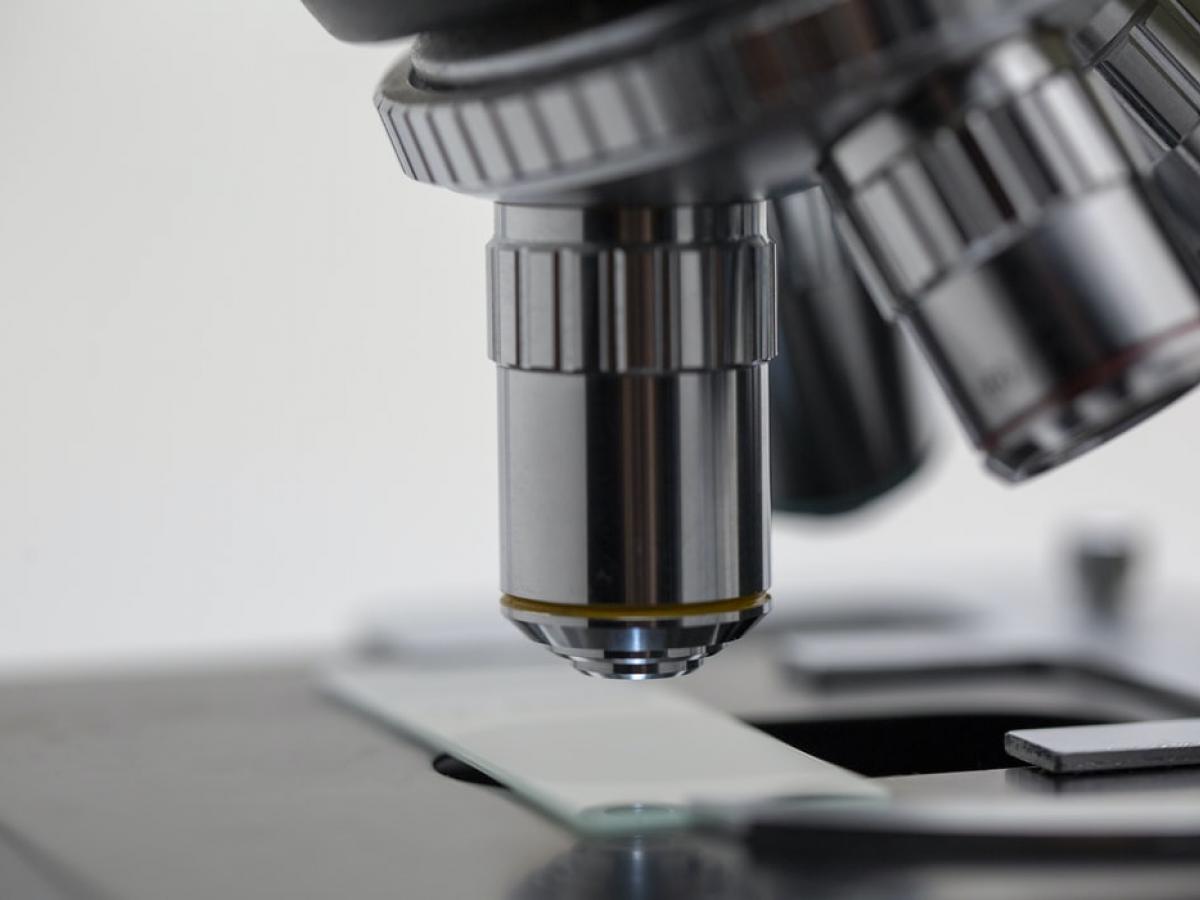Anatomy and Pathology
The Discipline of Anatomy and Pathology teaches and researches the structure of the body, with an emphasis on how changes in structure contribute to the development of disease.

Anatomy and Pathology encompass the study of the normal and abnormal morphology of the body at macroscopic and microscopic levels. The emphasis in anatomy is on understanding how the structure of the body relates to its function; in pathology, it is on developing an understanding of the causes, mechanisms of development, and consequences of disease.
Discipline of Anatomy and Pathology staff teach in all Faculty of Health and Medical Sciences degrees, and are actively engaged in research. They work closely with many clinical and affiliate titleholders—including at SA Pathology, the Forensic Science Centre, Royal Adelaide Hospital and elsewhere—and have extensive local, national and international collaborative relationships.
Together, this enables the discipline to provide students with a vibrant and supportive environment in which to begin or develop their careers in the medical sciences.
Wide-ranging research
The Discipline of Anatomy and Pathology fosters excellence in interdisciplinary research and nurtures the development of students to help them reach their full potential. Several research groups and collaborations have been established in the discipline, and several of these are described below.
-
Bone and Joint Osteoimmunology Laboratories
The Bone and Joint Research Osteoimmunology Laboratory carries out basic science and clinical research to explore bone pathology associated with rheumatoid arthritis, periodontal disease, orthopaedic implant failure and cancer treatment. The laboratory is particularly interested in taking a more systemic approach to understanding the impacts of inflammation on bone pathogenesis as well as associated effects on pain and well being.
Recent collaborative projects include understanding the experiences of children with Juvenile Idiopathic Arthritis with the Paediatric Rheumatology Department at the Women and Children's Hospital, Adelaide, exploring mechanisms of bone loss and pain in inflammatory arthritis with the Neuroimmunology group, the University of Adelaide and the Rheumatology Division at Flinders University and investigating Chemotherapeutic effects on Bone with the Mucositis Research Group, the University of Adelaide.
Contact: Associate Professor Tania Crotti
-
Translational Neuropathology Laboratory
The Translational Neuropathology Laboratory develops new treatment strategies for a wide range of neurological diseases and conditions, and improves the translation of treatments into the clinical setting. The laboratory is experienced with pre-clinical models of neurological diseases, behavioural assessment, immunohistochemistry, digital imaging, western blotting and tissue culture techniques.
Contact: Associate Professor Renée Turner
-
Centre for International Forensic Studies
The Centre for International Forensic Studies is involved in collaborative research with pathologists and scientists from Forensic Science SA, in addition to colleagues in a number of institutes within Australia and overseas. A major focus for the centre has been on accidental and inflicted trauma in infants and children, and many other aspects of paediatric forensic pathology. Additional research has also involved the: characterisation and dating of injuries; analysis of various aspects of suicides and homicides; and investigation of wildlife forensic issues.
Contact: Professor Roger Byard
-
Head Injury Laboratory
The Head Injury Laboratory investigates the acute and chronic effects of head injury ranging from milder concussion type injuries to more moderate injuries with the aim to improve the translation of treatments into the clinical setting. The laboratory is experienced with preclinical models of head injury, behavioural assessment, immunohistochemistry, digital imaging, western blotting and Polymerase chain reaction (PCR).
Contact: Dr Frances Corrigan
-
Spinal Cord Injury Research Group
The Spinal Cord Injury Research Group (SCIRG) within the School of Biomedicine is focused on understanding the secondary injury processes that occur post spinal core injury (SCI) and how these can be targeted to improve outcomes. We have recently developed a clinically relevant large animal model of SCI, the first in Australia, which allows us to investigate more clinically relevant outcome measures, improving translation into the clinic. We also work with other preclinical models to help understand the secondary injury processes post SCI, with a particular focus on neuroinflammation, and how these impact on both acute (oedema, intrathecal pressure) and chronic outcomes (pain, function, cognition).
Contact: Dr Anna Leonard
-
Cognition, Ageing and Neurodegenerative Disease Laboratory (CANDL)
The Cognition, Ageing and Neurodegenerative Disease Laboratory takes a bench-to-bedside approach in order to investigate the brain mechanisms that predict the onset and progression of cognitive decline in both healthy ageing and neurodegenerative diseases, such as Alzheimer’s and Parkinson’s disease. The ultimate goal of this work is earlier identification of risk and more targeted therapeutic intervention. In order to accomplish this, the laboratory takes a multi-faceted approach, incorporating in vitro techniques with studies in preclinical models and patient populations.
-
Contact us
Key contacts
- Associate Professor Renee Turner - Discipline Lead
- Professor Rainer Haberberger - Wood Jones Chair of Anatomy
Academic staff
- Dr Kent Algate - Lecturer
- Associate Professor Lyndsey Collins-Praino - Associate Professor
- Dr Frances Corrigan - Associate Professor
- Associate Professor Tania Crotti - Postgraduate Coordinator Manager
- Dr Nicola Eastaff-Leung - Lecturer
- Dr Viythia Katharesan - Senior Lecturer
- Dr Jaliya Kumaratilake - Senior Lecturer
- Dr Anna Leonard - Senior Lecturer
- Dr Sally Martin - Lecturer
- Dr Danijela Menicanin - Senior Lecturer
- Dr Agnes Arthur – Senior Lecturer
- Dr Elysia Sokolenko – Lecturer
- Dr Bianca Guglietti - Lecturer
- Dr Melissa Walker - Associate Lecturer
- Dr Bonnie Williams - Lecturer
